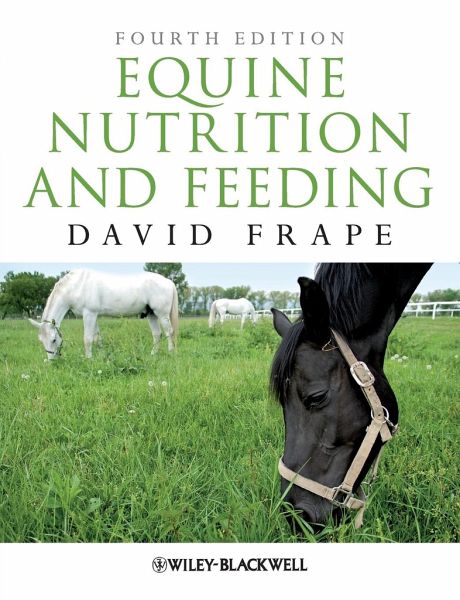
Equine Nutrition Feeding 4e
Versandkostenfrei!
Versandfertig in 2-4 Wochen
82,99 €
inkl. MwSt.
Weitere Ausgaben:

PAYBACK Punkte
41 °P sammeln!
Since the first edition of Equine Nutrition and Feeding was published in 1986, it has become the seminal work on the subject. It covers all the key topics that you need to know for your equine nutrition degree course. This comprehensive and clearly evidenced textbook covers how food is digested and nutrients are used in growing, working and breeding horses. It also explains the scientific basis for calculating nutrient and dietary requirements in an understandable manner, and shows you how to do these calculations. Special attention is also given to grassland and pasture, and to housing and di...
Since the first edition of Equine Nutrition and Feeding was published in 1986, it has become the seminal work on the subject. It covers all the key topics that you need to know for your equine nutrition degree course. This comprehensive and clearly evidenced textbook covers how food is digested and nutrients are used in growing, working and breeding horses. It also explains the scientific basis for calculating nutrient and dietary requirements in an understandable manner, and shows you how to do these calculations. Special attention is also given to grassland and pasture, and to housing and diet-related diseases.
Additional, student-friendly features include:
References to the most up-to-date information, including "Nutrient Requirements of Horses", from the National Research Council (2007).
Case histories to provide practical examples.
Study questions at the end of each chapter to help you to revise.
A comprehensive glossary of terms and abbreviations.
Changes to this fourth edition:
Evidence base has been expanded, with 646 new research reports and papers being incorporated.
Extensively revised to make navigation easier.
A new section is dedicated to the weaning and growth of the foal.
This book is the essential text for any undergraduate and postgraduate student of equine nutrition, equine veterinary medicine, equine veterinary nursing or agricultural science. It is also used by equine nutritionists and horse owners.
Additional, student-friendly features include:
References to the most up-to-date information, including "Nutrient Requirements of Horses", from the National Research Council (2007).
Case histories to provide practical examples.
Study questions at the end of each chapter to help you to revise.
A comprehensive glossary of terms and abbreviations.
Changes to this fourth edition:
Evidence base has been expanded, with 646 new research reports and papers being incorporated.
Extensively revised to make navigation easier.
A new section is dedicated to the weaning and growth of the foal.
This book is the essential text for any undergraduate and postgraduate student of equine nutrition, equine veterinary medicine, equine veterinary nursing or agricultural science. It is also used by equine nutritionists and horse owners.



